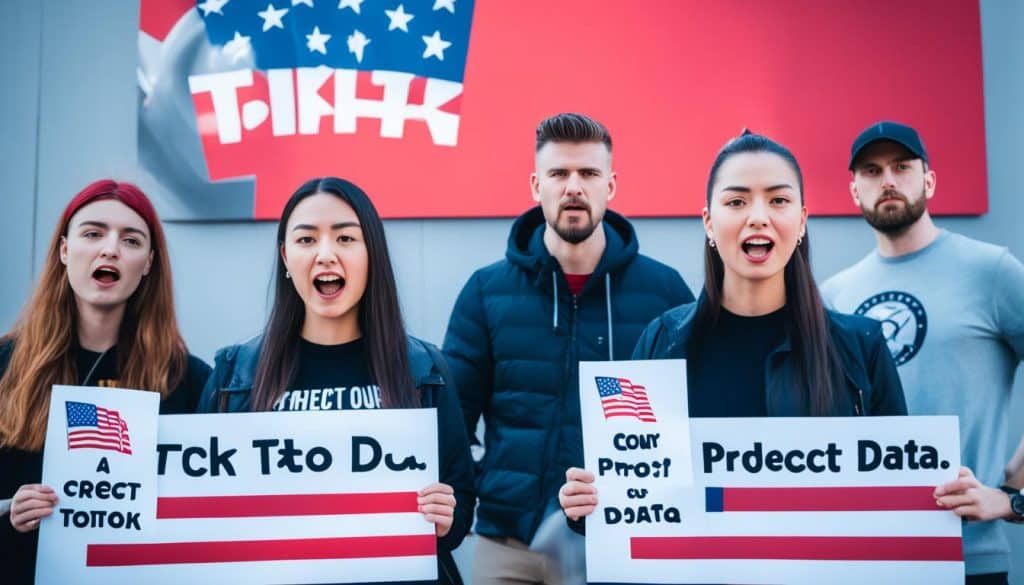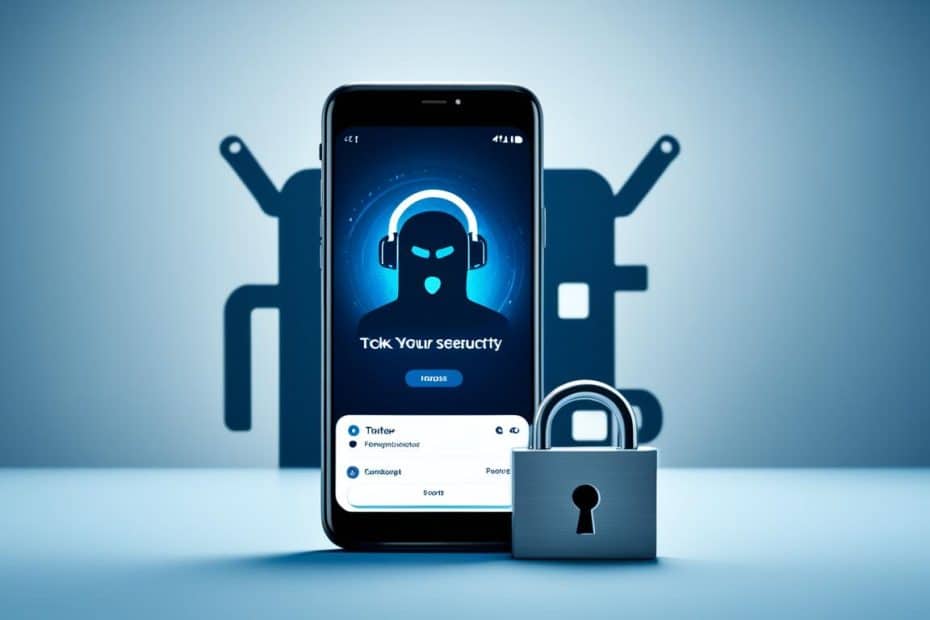The push for a TikTok ban in the United States is because of worrying privacy issues and risks to the nation. The app’s huge data collection lets foreign groups maybe see U.S. data. This could lead to a loss of control over U.S. data, which the country wants to avoid.
With TikTok’s rise, the U.S. government and experts in security are watching carefully. Combining a lot of user data with possible foreign control is a big threat to digital security and personal privacy. So, talk of banning TikTok is getting more serious and needed.
Key Takeaways
- Primary concerns for a TikTok ban include significant privacy and national security risks.
- Legislative actions have been initiated to address and mitigate these severe risks.
- The influence of ByteDance, TikTok’s parent company, adds complexity to the issues of data sovereignty.
- The ongoing debate emphasizes the need for stringent data protection and cybersecurity measures.
- Understanding the implications of these concerns is crucial for U.S. national security interests.
The Escalating Privacy and National Security Concerns
In the last few years, many have worried about TikTok privacy concerns and national security risks. U.S. lawmakers are now paying more attention. They are worried about how ByteDance, TikTok’s parent company from China, handles our data.
Legislative Actions Reflecting Security Apprehensions
Lawmakers are taking action to keep us safe from the app. They want to protect our interests and data sovereignty. They are suggesting rules that TikTok must follow in the U.S., especially about how they manage and own data.
The Perceived Threat to Data Sovereignty from ByteDance
Many worries are about data sovereignty. This means data should be controlled by the country’s laws where it’s kept. Some fear ByteDance, located in Beijing, might have to share user data with the Chinese government. This could be very risky for the U.S.
Data Access Laws and Potential for Foreign Interference
Another worry is about foreign interference through data laws. People fear TikTok might have to give out data. This info could change the way people think or even government decisions to favor other countries.
The Impact of “Project Texas” and Federal Investigations
“Project Texas” is TikTok’s plan to move U.S. user data to U.S. servers. The goal is to follow U.S. regulations and reduce risks of foreign attacks. Also, the government is checking if these and other efforts are keeping U.S. users safe from big security risks.
Reasons Why TikTok Should Be Banned
In talks about safety and ethics, TikTok ban reasons have hit the big stage. Many folks say TikTok should be banned because it doesn’t keep user data privacy safe or clean up its content well. Let’s dig in to see why people are pushing for this ban.
The key issue is user data privacy. With millions on TikTok, there’s a ton of personal info at risk. This info could be misused, especially because different countries have different privacy rules. Then there’s the problem with content moderation. TikTok has struggled to keep its content helpful and true, leading to worries about how responsible social media should be.

Look at this table below. It shows where TikTok has slipped up on protecting data and handling content:
| Data Privacy Issues | Content Moderation Failures |
|---|---|
| Reported leaks revealing sensitive user data | Slow response to violent content posted online |
| Potential backdoor for foreign data access | Inadequate filtering of age-inappropriate materials |
| Usage of data mining practices conflicting with privacy norms | Propagating misleading information during crucial times |
These examples back the push for a TikTok ban. They show big problems with user data privacy and content moderation. As more info comes out, the talk about these issues will grow, changing how people see TikTok’s role in the world.
Addressing the Economic and Social Implications of a Ban
The talk about banning TikTok reaches many levels. It touches the use of the app, its big group of users, and the economy. The ban could shift where people go online. It might be hard for those who make content. And it brings in how this change looks around the world.
Likely Outcomes for American Users and Businesses
If TikTok gets banned, folks might move to other apps like Instagram Reels or YouTube Shorts. This could help those other apps get more popular. But, it might make it tough for small businesses to reach their customers without TikTok’s help. Some places will get more money from ads. Others might not do as well.
Adverse Effects on Millennial and Gen Z Content Creators
Young content makers on TikTok, like Millennials and Gen Z, could face big problems. Many get their money from showing off products or making deals with brands. The ban might stop this, causing a ripple effect. It might lead to less diverse online culture. These creators will have to find new places to share their work.
Comparative Analysis with Other Countries’ Bans
Looking at bans in places like India can show us something about the future. After the ban, lots of new apps showed up. But, things weren’t easy. There were troubles for people making ads and content. They were used to the way TikTok worked.
| Country | Impact on Users | Impact on Businesses |
|---|---|---|
| USA | Potential large scale user migration | Shift in advertisement spending and platform engagement |
| India | Emergence of alternative apps | Disruption in influencer economy and brand partnerships |

Legal Challenges and the Future of Social Media Regulation
The TikTok ban debate brings up tough legal issues like First Amendment rights and data privacy in the US. Policy makers are facing a big dilemma. They need to balance keeping the country safe with people’s rights. How they handle the TikTok ban could guide future rules on how much control we have over social media and our privacy.
The fight over TikTok is making us think hard about new rules for social media. These new rules affect both free speech and keeping our data safe. It’s a tough job. Governments need to help us stay safe online without stopping us from talking freely. Finding the right rules means keeping up with fast changes in tech and what people need.
TikTok’s issues are just the start. More big changes in social media rules might be on the way. These talks could make stronger privacy rules that follow global advice but fit the US best. As our online world keeps growing, our rules need to grow too. They must protect our data and keep us free to say what we think.

